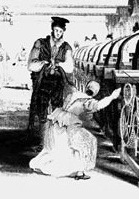 Submitted by LI - Executor on
Submitted by LI - Executor on

This article is by Barry
http://personalityspirituality.net
By way of background, I have been suffering from various ailments over recent years. I have a rare and incurable condition affecting my respiratory tract which requires regular surgery, otherwise I would slowly choke to death. For some months I have also had post-viral fatigue — a debilitating state of weakness, severe aches and pains, and a constant ‘flat battery’. I have also been getting headaches and my eyesight has been going blurry. Oh, I also have a weird blotchiness on my skin, like reddish leopard spots. (I sound like a right old mess!)
Psychologically, I am dealing with a certain conflict around my work. I also have a lifelong problem with excessive shyness. This has been debilitating at times, but these days I am learning to handle it well enough. I do, however, often find normal conversation stressful and will generally try to avoid it.
My intention with the regression therapy was to see if we could get to the bottom of any of these issues.
The regression
After an hour-long introductory chat and exploration of my issues and symptoms, followed by the relaxation and induction procedure, we began with the therapist, Hazel, taking me directly to the source of my throat problem.
I immediately found myself writhing with discomfort. I seemed to be in a toxic environment. I had no visual imagery as yet, but when asked where I was, I got the impression that I was in a factory — more precisely, one of the classic ‘dark satanic mills’ of the Industrial Revolution. Possibly in Yorkshire (Northern England).
It was a dark, noisy, bad-smelling place, and I knew that I was slowly being poisoned by it. The word ʻmercuryʼ occurred to me.
I was wearing something like a top hat, an open jacket, waistcoat and checkered trousers, and I carried a pocket watch. I appeared to be a factory floor supervisor, keeping an eye on the workers. I hated my job. For some reason, though, I had no way out. I was stuck in something I loathed.
When asked for the name of the place, the first word that came to me was ʻGrimsbyʼ, and then I said with a smile, ʻbut thatʼs just because itʼs grimʼ. The next place name I got was ʻShelbyʼ or possibly ‘Selby’.

Asked how I died, I started choking and writhing in agony. I was dying on a stretcher on the floor of a very dingy little room. I think I was 24 years old.
We went back to an earlier time. I had been a child on a farm when I first saw this vast building springing up nearby: the new mill. I had been awestruck. I thought, ʻThis is the way of the futureʼ. I was so impressed by its grandeur, and by what we would now call the cutting edge technology, that I wanted to be part of it. I thought it would be so marvelous to join the Industrial Revolution.
I remember that I (Barry) was struck by the contrast between the smells of the countryside and farmyard I knew as a child and the disgusting smells of the factory in my adulthood.
We moved to the next significant event, which looked like my wedding. We were outside the church on a sunny day; petals were being thrown over my bride and me. I could see myself through others’ eyes: I was very cheerful, in top hat and tails. I had soft whiskers. I think I was 22 years old.
I could not get a clear image of my new wife — mostly just the shape of a figure in a wedding dress. I did, however, sense that it could have been a certain cousin in my present life (we were close as children).
I appeared to be under the thumb of my wifeʼs father. His name, apparently, was Arbuthnot. His first name may have been Reginald, but everyone referred to him as ʻOld Arbuthnotʼ. He was a round, unpleasant, domineering fellow, a loathsome Dickensian character. Perhaps he hadnʼt wanted his daughter to marry me, but she had become pregnant so marriage was unavoidable. I had the impression of him telling me, ʻI own you nowʼ. I was obligated. So I had to work in his factory.

I was the shop floor supervisor. My job was to keep an eye on the workersʼ productivity, and I was under constant pressure from the owner to make sure the workers did more than a fair dayʼs work for their meagre pay. He wanted me to ensure we squeezed every last drop out of them. He treated them like machines.
I was also feeling increasingly weak, sick. I knew that I could not physically survive in this environment. My body was poisoned. I could taste metal inside me.
I found myself in a horribly awkward position. I did not share the owner’s view of the workers; I felt sorry for them, sympathetic, compassionate. In fact, in some ways I was secretly protecting them from Arbuthnotʼs worst demands, though they were not aware of it. I hated my role. But what could I do? I felt powerless.
I also suspected that the workers all despised me for being on the bossʼs side. And I could well understand why. So I kept away from the workers themselves. I watched them but did not interact with them as far as possible.
My feelings were also complicated by the fact that although Arbuthnotʼs actions and attitudes were despicable, I could nevertheless see him as a human being with ordinary human flaws. I understood him much better than he understood himself. But again, what could I do?
I seemed to end up playing a mediating role, serving the factory owner honourably but without letting him cause too much damage to others.
Then, one day, old Arbuthnot was upset about more local factories springing up, providing too much competition. He required even more out of his workforce, and it was my job to see to it. I knew it would be impossible, and it also felt absolutely wrong. I was in too much conflict, more stress than I could handle. I could see no way out.
I resigned myself to suicide, took hold of a flask of mercury, and drank from it.
A short while later I was dying on that stretcher, wheezing to death, my body clenched in agony. Breathing was too much effort and I let go.
I was above my body for a while, unsure of myself.
I then found myself in a healing space — a sphere of gaseous, multicoloured light.
The feelings of toxicity and illness gradually drained out of me.
It felt exquisite, but I wasnʼt sure if I was meant to be there. I think I was worried that I might be in trouble.
Asked if there were other beings with me, I was aware of one who seemed kindly and was leading me by the arm. There was more a sense of presence than appearance; the figure just looked like a cloudy humanoid shape. But when I put my attention on the head, a beautiful and loving feminine face came briefly into focus.
I think I was very disoriented, so I was being led gently, one step at a time, so as not to be overwhelmed.
When I looked around me, I could perceive mostly a foggy whiteness with a sort of rainbow effect marking the ʻhorizonʼ. But I could sense that this fog was partly in me, or designed for my perception. It was as though what I saw reflected only what I was allowing myself to see, or as much as I could handle. When I decided to really see what was what, I suddenly perceived this vast, multi-coloured three-dimensional vista of space filled with unknown beings. I was overwhelmed, like an ant in a cathedral, and somehow I switched it off, settling for the foggy whiteness, keeping my attention on whatever was going on just around me.
I was aware of a group of beings coming towards me. They were humanoid in shape, but more like golden light than solid form. We embraced and I had a sense of recognition that this was ʻmy gangʼ.
I was still quite unsure of myself, however. Some of my attention seemed to be still with the last life; I seemed to have brought a lot of that personalityʼs conflict and confusion with me. I hadnʼt quite disidentified from it as yet.
When I saw my wife from that life, there was a playful sense between us. She hadnʼt minded me leaving; it had been kind of understood between us. I had, however, become very worried about leaving behind a child. (The interval between the marriage and my death was, it felt, around two years.)
When the soul of this child was brought in, I got that my disappearance from the scene was precisely what he/she had planned for in that life. Thatʼs why they had chosen to be born there and then. My death had come somewhat earlier than I had originally planned, but it was an early ‘exit opportunity’ which I had allowed for in my own life plan.
I then met the souls of the factory workers. I was afraid that they would hate me, but found instead that they had been aware of me trying to quietly protect them. In fact, they hadnʼt despised me, as Iʼd assumed, but only what I represented, what I stood for. In fact, it was they who felt sorry for me.
I also learned that if I had persisted with that life, there would eventually have been the opportunity to work with or on behalf of the workers to change the system, to ensure better rights and conditions. I would have been part of a progressive movement. I had already probably missed that opportunity to come, however, by shying away from contact with the workers. I realised that, had I reached out to them I would have made some valuable contacts and friendships, and this would have built up into a kind of collective effort. My fear and misapprehensions had got the better of me however.
Finally, I met the soul of Arbuthnot. I learned that it had been his task in that life to make my life hell — that had been our agreement. I realised that I had signed up for the challenge, and he had played his part very well. I felt no animosity, just relief that it was over, and a certain amusement at seeing his natural talent for playing such a role.
I was now ready to end the regression, and desperate for a pee!
When I opened my eyes I noticed that I could see everything extremely clearly.
Reflections on the experience
I still haven’t put together all of the pieces, or identified what it means to me in full. I just have snippets and whiffs of meaning. It’s all a bit too big to take in at once!
My wife and friends have asked me some really useful questions about it, so here is a compilation of my answers.
Did it seem real?
I was not in a deep trance, so for much of the time I was mentally observing the whole thing and questioning the reality of it, but I had determined to surrender to whatever came up and just go with it. I had also just read a regression account by a sceptic who was blwon away, and I got that it’s a matter of following/trusting the reality of the emotions regardless of whether I could get any images whatsoever.
So I just allowed myself to go into a raw emotional state and when the therapist asked me “What’s going on?” I told her how I felt and when she asked “Why?” I just opened up to whatever was there. And lo and behold this consistent scenario unfolded, one fragment at a time. Whether it was a creation of my imagination or a genuine memory I cannot say (I wish I could), but the more time passes since the experience, the more unlikely it seems that I could have imagined such a coherent story. Also, the real point of it for me was the emotional reality. I felt (and still believe) that I was at the core emotional source level of certain issues, and the scenarios that came to my mind happened to explain the emotions I felt in a consistent and coherent way which I found rather impressive.
I didn’t get very clear imagery — I wasn’t as immersed in it as I would have hoped. It was a bit like looking through murky water. I think if I’d had a longer induction I could have got there — but it was only the first attempt after all. What I got were flashes of imagery as the therapist asked me to look and see and report back.
There were some aspects of it that were “invisible” to me — like my wife’s face for example. I don’t know if this was because such details were (a) irrelevant to the emotional process, or (b) not for me to know right now.
What about seeing clearly afterwards?
Aha! Well, I’ve always had very good vision. However, over the last, say, 5 years the acuity has started to go. I have been getting increasingly short-sighted, unable to read small (and not-so-small) print, asking my kid to read out labels for me, straining to read newspapers and books. I got a pair of reading glasses 2 or 3 years ago, but after a year I lost them and have yet to replace them. I keep writing notes to myself to make an appointment because my eyesight is getting so poor.
Well, after the regression I found that my vision was completely back to normal. Seriously! I can read all the small print again without even squinting. In fact, I haven’t found any too small for me to read yet. It’s unbelievable!
I have no idea if it’s going to stay like this but it’s quite a surprising result to say the least.
How do you explain that?
I got the impression that the past life personality was suffering from chronic mercury poisoning, as well as using mercury to take his own life at the end. Perhaps my own issues in recent years have been evoking this past life because of the emotional resonance — and somehow the physical symptoms I was suffering simultaneously then have been ‘reactivated’.
I’ve been doing some research into mercury use and mercury poisoning since the experience. Until the late nineteenth century, mercury was used primarily in the processing of felt for hatmaking. It was also used in other industries, such as the manufacture of barometers, preserving wood, developing daguerreotypes, silvering mirrors, anti-fouling paints, herbicides, handheld maze games, antiseptics, laxatives, antidepressants and antisyphilitics — and, more recently, dental fillings. It was probably in felting and hatmaking, however, that workers were most exposed to mercury vapours. And there were many hat-works in northern England.
Mercury was discovered to have debilitating effects on people exposed to it over time. The term ‘mad as a hatter’ is associated with the hatmaker because of the psychosis caused by prolonged mercury exposure.
Mercury vapour is highly toxic if inhaled, causing severe respiratory tract damage. Now, for the last 10 years I have had a disease affecting my respiratory tract. Left untreated, I would choke to death. And this disease came on just when I discovered that I was going to become a father. I have always sensed that there was a connection between my (then) anxieties about parenthood and the occurrence of this illness affecting my ability to breath. The disease nearly killed me but I chose not to desert my newborn child.
Aside from the sore throat, coughing, chest pain and breathing difficulties, other physical symptoms of mercury poisoning include headaches (check), loss of teeth (check, in childhood), muscle weakness (check — I have post-viral fatigue), blotchy skin (check) … and blurred vision…
What’s more, there are psychological symptoms associated with neurological damage caused by mercury poisoning, the main one being my biggest issue in life — extreme shyness.
What was it like in the between-lives state?
I was in an emotionally peaceful and expansive state, but mentally I (as that personality) was also in a state of post-mortem confusion. I still had much of that personality and I / he feared that he was in trouble. On another level, I (Barry) sensed that I hadn’t completed my reorientation to the afterlife.
Interestingly, the Conversations With God books talk about the death process as a sequence of three disidentifications. First you disidentify from the body (floating conscioiusness, moving to the light). Then you disidentify from the feelings (let go of pain, grief, anxiety, etc). Then you disidentify from the mind – download the memories of that life and remember yourself as soul. I presumably hadn’t got to that bit. I was still mentally identified with that personality. I seemed to feel overwhelmed by the vastness and purity of the afterlife realm and tried to shut it out.

- 1139 reads